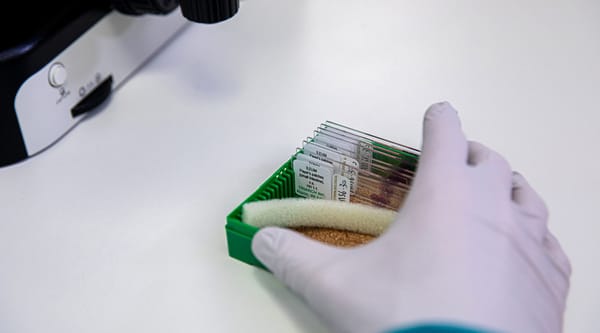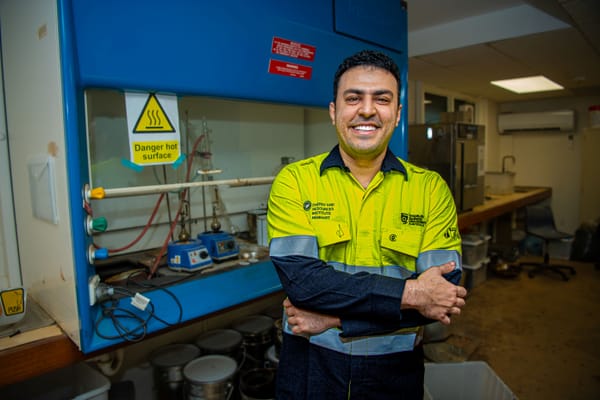Research collaborates to tackle farm fatigue
By merging frontline agricultural insights with cutting-edge research, this project aims to deliver comprehensive, user-friendly guidance on fatigue management tailored to the unique demands of farming.

By Mary Bolling
CQUniversity researchers are inviting farmers to discuss challenges and solutions for farm fatigue management, in an Australian-first bid to improve agricultural safety, productivity and health.
In collaboration with the Rural Safety & Health Alliance (RSHA) the Farming and Fatigue: Growing Sensible Solutions project aims to help industry understand, measure and manage fatigue on-farm.
It’s the first time sleep and wellbeing research will tackle this issue in the sector.
Research workshops will hear the voices and views of farmers on the Eyre Peninsula in August 2024, after a successful series with dairy farmers in Gippsland Victoria in June.
CQUniversity’s Appleton Institute, and its Agricultural Education and Extension team, are working with AgHealth Australia at The University of Sydney to deliver the research.
Register for one of the free two-hour lunch workshops on Thursday 22 August in Wudinna, and Friday 23 August in Cummins, via https://bit.ly/FarmFatigue.
Director of the Appleton Institute and project team lead, Professor Sally Ferguson, will also be at the Eyre Peninsula Field Days across 13-15 August, at the Uni Hub Spencer Gulf stand, to talk about the project.
“The mining industry has been doing this for years – analysing specific elements of their operators’ work that cause fatigue, to understand the specific consequences based on how their performance is impacted, and then manage that risk,” Prof Ferguson explained.
“That’s what we want to learn for the farming sector.”
CQUniversity has partnerships with ag organisations across Australia, and the Farming and Fatigue project is connecting with independent producer-run initiative Ag Innovation and Research Eyre Peninsula (AIR EP) for its South Australian workshops.
By merging frontline agricultural insights with cutting-edge research, this project aims to deliver comprehensive, user-friendly guidance on fatigue management tailored to the unique demands of farming.
The team aims to enhance safety, productivity and wellbeing across the agricultural sector through its findings – beginning with dairy, egg, cotton and grain producers.
The project will ultimately deliver a practical guide to assist agricultural enterprises of all sizes to understand, measure and manage fatigue on their farm.
Fatigue on-farm has been identified as an industry-wide priority for the RSHA, a collaborative partnership between Rural Research & Development Corporations investing to improve primary production’s health and safety record, through innovation and development.
“We want producers to have a clear understanding of how their current working patterns can be tweaked a little bit to manage the risk better,” Prof Ferguson said.
“We’re not saying ‘Change your entire schedule’, it’s about asking, ‘What do you need to be thinking about while you’re working to keep yourself safe, happy and productive?’.
“It’s not about downing tools after X number of hours – fatigue is inevitably higher at different times of the year or parts of the day for different individuals working in different industries.”
CQU Agricultural Education and Extension lead, Associate Professor Amy Cosby said Gippsland dairy farmers had highlighted long days, limited days off, workforce shortages and seasonal challenges as issues for fatigue management.
“We all know dairy farmers have very early starts, but it is clear that there are many factors which affect the physical and mental fatigue including working on rainy, windy and cold days and the added load of the business management aspects of business.”
“Dairy farmers who attended the workshops not only shared their work practices with the researchers and peers, but the fatigue management strategies they have in place for themselves and staff they manage,” A/Prof Cosby said.
The Farming and Fatigue management guide will include tools to help farmers identify ‘hot spots’ – where and why fatigue might be an issue in their operation, and controls to reduce potential harm of fatigue without impacting production.
“I think it’s important for producers to know that this project is driven by their own industries,” Prof Ferguson said.
“We have people in the research team who run farms and have lived experience doing these jobs – we’re all excited to be contributing to this potentially life-saving project.”
The Farming and Fatigue project is administered by AgriFutures Australia and funded by the Rural Safety & Health Alliance (RSHA) which is a collaborative partnership between AgriFutures Australia, Australian Eggs, Australian Wool Innovation, Australian Pork Ltd, Cotton Research and Development Corporation, Dairy Australia and Grains Research and Development Corporation.




